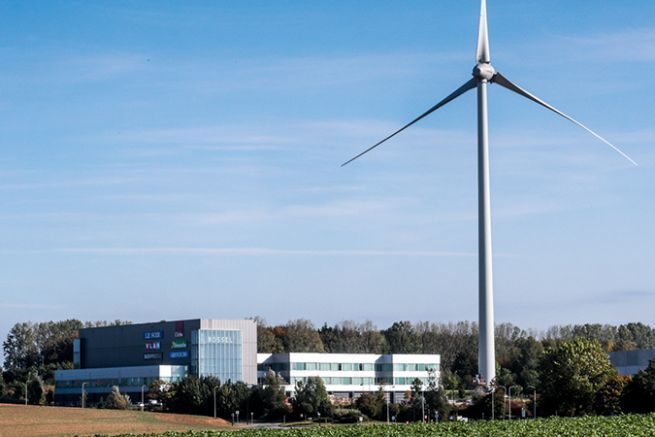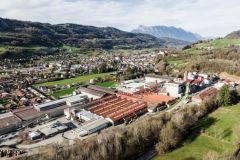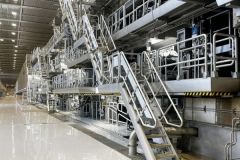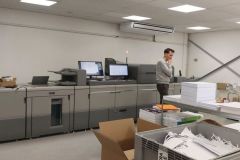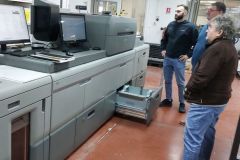"It took us more than eight years to get the permits and get through all the technical constraints, but the result lives up to our ambitions." said Bernard Marchant, the managing director of Rossel & Cie, in a statement. On Tuesday, the director officially inaugurated the 130-metre-high wind turbine at the printing site of the Rossel press group in Nivelles, Belgium. This remarkable installation now supplies electricity to the printing plant's offices and, above all, to the web press, which produces 3.5 million copies of newspapers every week.
The reduction of 1,400 tonnes of CO2 per year
The wind turbine covers 60 percent of Rossel Printing Company's total energy consumption, says Luminis, the installer. Its annual production of 5,000 MWh corresponds to the consumption of about 1,400 households. The printing plant, which thus reduces its energy bill, avoids the emission of 1,400 tonnes of CO2 per year.
This is not the group's first non-fossil fuel plant. Since 2011, the Rossel Printing Company has been equipped with a heating network from a neighbouring agricultural site that covers 3% of annual needs thanks to chicory. Photovoltaic panels installed in 2014 on the roof of the printing plant produce 5% of the site's electricity needs. And the cogeneration plant since December 2015 meets 60% of the heat needs and 12% of its total energy needs.
The environmental impact of the digital press also needs to be improved
And Bernard Marchant took advantage of this event to talk about the environmental impact of digital consumption, an impact on which he also intends to work: "When we talk about a greener daily newspaper, it would be illusory to stop at the production of paper newspapers: digital consumption on our laptops and tablets also raises questions.
The general public is largely unaware of this, but this virtual consumption has a considerable impact on the environment. This concern will certainly animate us over the next few years. There is much debate today about data storage and its real environmental cost. Today, the proportion of the useful part of this monster storage needs to be refined to optimize its carbon footprint and impact on our planet."
